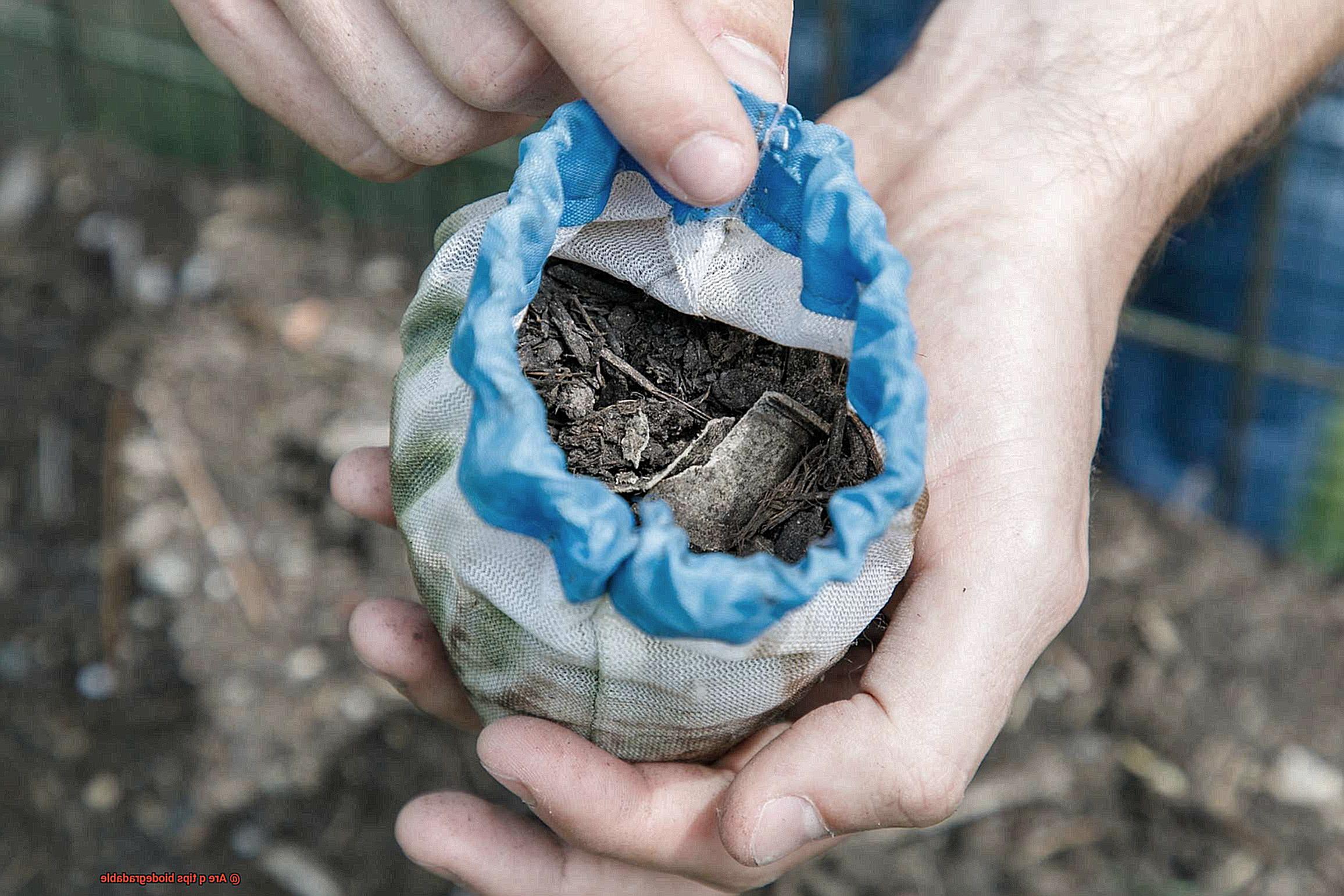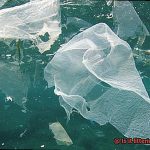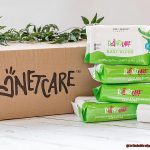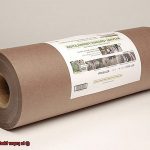Have you ever taken a stroll on the beach and noticed small white sticks scattered everywhere? They’re not toothpicks, but rather Q tips. These little cotton swabs are the most common items found in the ocean and on beaches. But have you ever pondered about their impact on the environment? Are Q tips biodegradable?
The answer isn’t as simple as it seems. The cotton tips on Q tips are biodegradable, but the plastic stems they’re attached to are not. So when you toss a Q tip into your toilet bowl, the cotton tip may eventually decompose, but the plastic stem will remain for hundreds of years.
Fortunately, many companies have recently started producing eco-friendly Q tips with biodegradable stems made from materials like paper or bamboo that break down much faster than traditional plastic. By choosing biodegradable Q tips, you can make a significant difference in reducing your personal waste footprint.
In this blog post, we’ll delve deeper into the subject of Q tips and their biodegradability. We’ll explore why they pose an environmental problem, what factors determine their biodegradability, and alternative options for eco-friendly Q tips. Let’s dive in.
What Are Q Tips?
Contents
If you’re someone who likes to keep their hygiene in check, then you’re probably familiar with Q tips. These small stick-like tools with cotton on both ends were first invented in 1923 by Leo Gerstenzang, who marketed them for cleaning babies’ ears. However, over the years, they have become popular among adults for various uses such as cleaning hard-to-reach areas and applying makeup.
The Dark Side of Traditional Q Tips: Plastic Pollution
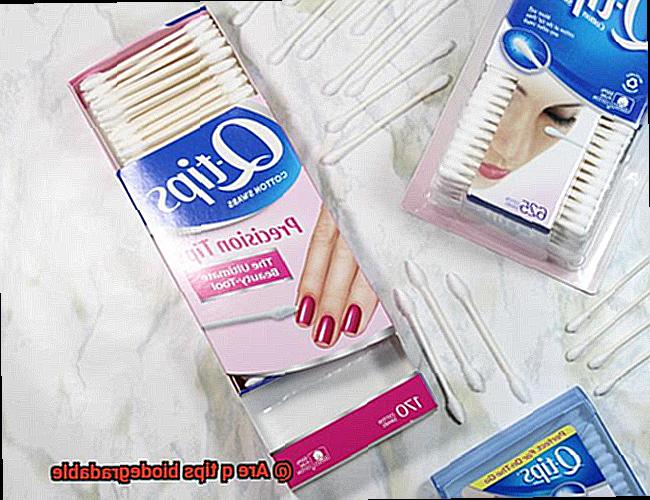
While Q tips may seem like a harmless and disposable item, they are actually a major contributor to environmental waste. Most Q tips are made of plastic and cotton, with the cotton being the biodegradable component. Unfortunately, the plastic stick is not biodegradable and can take hundreds of years to decompose in landfills. Hence, if Q tips are disposed of improperly, they can contribute to the growing problem of plastic pollution in our environment.
The Importance of Biodegradability: A Crucial Factor to Consider
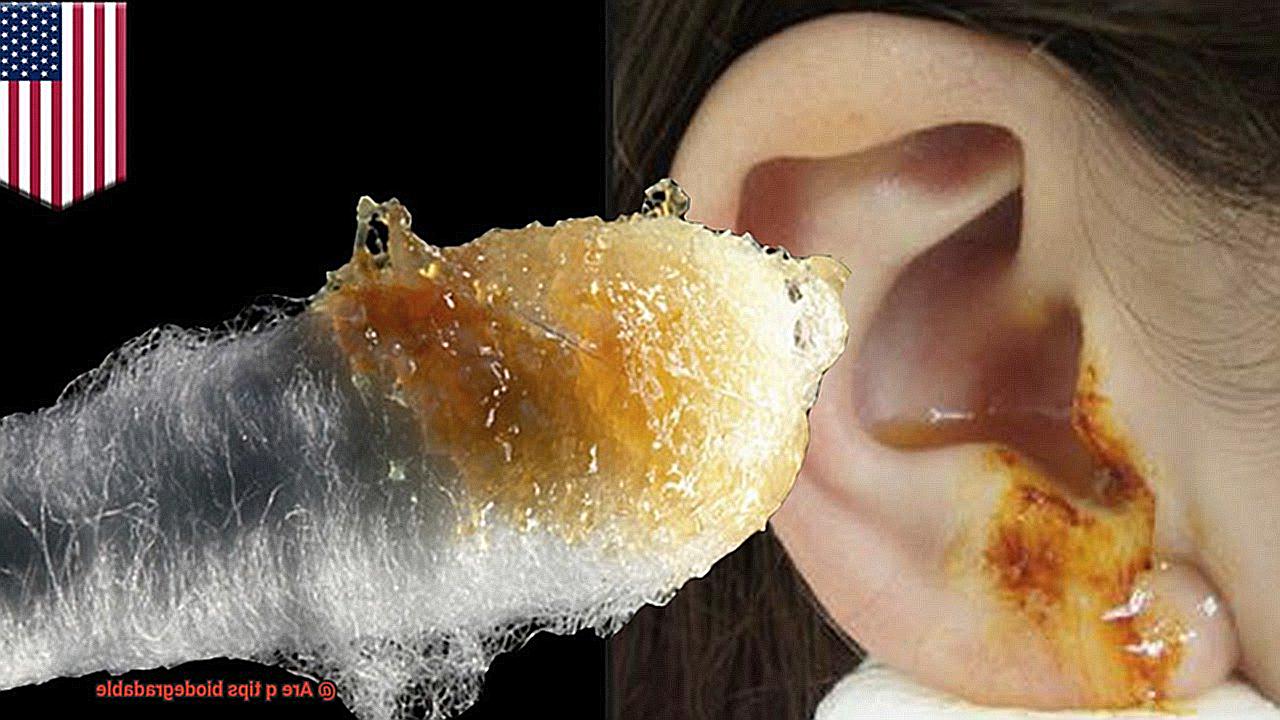
The issue of biodegradability is crucial when it comes to Q tips. While the cotton portion is biodegradable, it can take up to 5 months to decompose. This may not seem like a long time, but when you consider how many Q tips are used and disposed of every day, it adds up quickly. Choosing more sustainable alternatives that are biodegradable can make a big difference in reducing waste and protecting the environment.
Eco-Friendly Alternatives: Sustainable Solutions
To address this issue, some companies have started producing eco-friendly Q tips made from bamboo sticks instead of plastic. These options are biodegradable and offer a solution to the problem of plastic waste. Additionally, some brands offer organic or sustainable options for their cotton swabs, making it easier for consumers to make more sustainable choices.
Making Sustainable Choices: A Step Towards a Greener Future
As consumers, we have the power to make a positive impact on the environment by choosing more sustainable options for everyday items like Q tips. By properly disposing of traditional Q tips and choosing eco-friendly alternatives, we can help reduce waste and protect our planet.
The Materials Used in Q Tips
Q tips are a household staple used for everything from cleaning ears to applying makeup. However, the materials used in their production can have a significant impact on the environment. In this blog post, we will explore the different materials used in Q tips and their impact on the environment.
The Plastic Stick: A Long-Lasting Problem
Most Q tips have a plastic stick that is not biodegradable. This means that if you throw them in the trash, they will sit in a landfill for hundreds of years, taking up space and harming the environment.
However, some companies are now making Q tips with biodegradable materials like bamboo or paper. By choosing these eco-friendly options, you can help reduce your impact on the environment and keep plastic pollution at bay.
Organic Cotton: A Cleaner Alternative
Not all cotton is created equal. Most Q tips use cotton that is not organic, which means it may have been grown using harmful chemicals and pesticides. This type of cotton takes longer to break down and can harm the environment. However, some Q tips are now made with organic cotton, which is grown without harmful chemicals and pesticides.
Organic cotton is biodegradable and can decompose naturally without harming the environment. So next time you’re shopping for Q tips, look for ones made with organic cotton to make a positive impact on the environment.
Paper Sticks: A Sustainable Solution
Plastic sticks are not the only option for Q tips. Some companies are now making them with paper sticks, which are often made from sustainable materials like bamboo or recycled paper. These paper sticks are biodegradable, meaning they will break down naturally over time and won’t harm the environment. By choosing Q tips with paper sticks, you can make a positive impact on the environment and reduce your carbon footprint.
Eco-Friendly Alternatives: Making a Sustainable Choice
If you’re looking to reduce your impact on the environment even further, consider choosing eco-friendly alternatives to traditional Q tips. These products use alternative materials like bamboo or plant-based plastics, which are biodegradable and won’t harm the environment. By choosing these sustainable options, you can make a positive impact on the environment and help reduce plastic pollution.
Proper Disposal: A Simple Solution
Ultimately, the key to reducing the impact of Q tips on the environment is proper disposal. If you’re using traditional Q tips with plastic sticks, make sure to dispose of them properly in the trash.
Don’t flush them down the toilet, as they can cause blockages in pipes and harm marine life. And if you’re using biodegradable Q tips, make sure to compost them or dispose of them in a way that won’t harm the environment.
Traditional Q Tips and Their Impact on the Environment
Traditional Q Tips may seem like a small and harmless item, but their impact on the environment is significant. These cotton swabs are made of plastic and cotton, creating a challenge in determining their biodegradability. The plastic stem is not biodegradable, and when disposed of improperly, can contribute to the growing problem of plastic pollution.
Additionally, the cotton used in Q Tips may be biodegradable, but it depends on how it is grown and processed. Traditional Q Tips are not environmentally friendly and can harm wildlife when not disposed of properly.
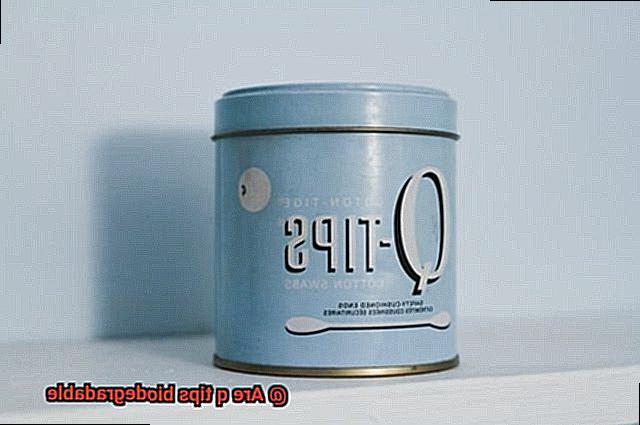
The Impact on the Environment
The negative impact of traditional Q Tips on the environment should not be underestimated. When disposed of improperly, they take hundreds of years to decompose in landfills, adding to the already existing plastic waste.
When flushed down the toilet, they can end up in waterways and harm marine life. Marine animals are at risk of ingesting them, which can lead to suffocation or starvation. It’s alarming that over 1.5 billion Q Tips are used and thrown away each day worldwide, contributing to the global plastic pollution problem.
Biodegradable Alternatives
Thankfully, some companies have started producing biodegradable alternatives made from sustainable materials like bamboo, organic cotton, or paper sticks. These eco-friendly options provide a solution to the problem of plastic waste and offer a more sustainable choice for consumers.
Switching to biodegradable alternatives does not only reduce our environmental footprint but also supports companies that prioritize sustainability.
Proper Disposal
Proper disposal of traditional Q Tips is crucial to minimize their negative impact on the environment. They should be disposed of in the trash and not flushed down the toilet.
By disposing of them properly, we can prevent them from ending up in waterways or landfills where they can harm wildlife and contribute to plastic pollution. It’s also essential to educate others about proper disposal and encourage them to make sustainable choices.
Making Sustainable Choices
Choosing eco-friendly alternatives is just one way we can make sustainable choices. We can also reduce our consumption of single-use items altogether.
For example, using a washcloth instead of Q Tips for personal hygiene, or opting for reusable cotton rounds instead of disposable ones for makeup removal. By being mindful of our consumption habits and making sustainable choices, we can contribute to a healthier planet for future generations.
Eco-Friendly Alternatives to Traditional Q Tips
One simple change you can make is to switch from traditional Q tips to an eco-friendly alternative. There are several options available on the market that are just as effective at cleaning your ears, but won’t harm the environment. Here are five eco-friendly alternatives to traditional Q tips that you can try today.
Bamboo Cotton Swabs:
One of the most popular options is bamboo cotton swabs. These swabs are made from sustainable bamboo and organic cotton, making them a great eco-friendly choice. Bamboo grows quickly and doesn’t require pesticides or fertilizers, making it an environmentally friendly resource. Plus, they come in compostable packaging, reducing waste even further.
Reusable Ear Swabs
Another option is reusable ear swabs. These silicone swabs can be washed and used multiple times, making them a great choice for those who want to reduce waste and save money in the long run. Plus, they’re easy to clean and sanitize, so you can keep them hygienic.
Biodegradable Q Tips
If you still prefer the feel of traditional Q tips, there are also biodegradable options available. These Q tips are made from paper stems and cotton tips, making them fully biodegradable and compostable. They’re just as effective as traditional Q tips, but won’t contribute to plastic pollution.
Organic Cotton Swabs
For those who prefer a more natural option, there are also cotton swabs made from organic cotton. These swabs are free from pesticides and other harmful chemicals, making them a safe and eco-friendly choice.
No Swab Method
Finally, some people choose to simply use their fingers to clean their ears instead of using Q tips at all. While this may not be the most convenient option, it is certainly the most environmentally friendly as it produces no waste.
No matter which option you choose, it’s important to dispose of them properly. Never flush any type of Q tip down the toilet as this can cause serious damage to plumbing and harm the environment. Instead, dispose of them in the trash or compost bin depending on the materials they are made from.
How to Properly Dispose of Traditional Q Tips
It’s important to note that most traditional Q tips are not biodegradable, which means that they can potentially harm our environment if disposed of improperly. Here are five sub-sections that will guide you on how to properly dispose of traditional Q tips.
The Challenge of Biodegradability:
Traditional Q tips are made of a combination of plastic and cotton, creating a challenge in determining their biodegradability. The plastic stems used in Q tips are typically made of polypropylene, which is not biodegradable. On the other hand, the cotton used in Q tips may be biodegradable, but it depends on how it is grown and processed. This means that if disposed of improperly, traditional Q tips can contribute to the growing problem of plastic pollution in our environment.
The Importance of Proper Disposal:
To prevent Q tips from harming wildlife and polluting our oceans and landfills, it is crucial to dispose of them properly. The first step is to throw them in the trash bin. However, make sure not to flush them down the toilet as they can cause blockages in sewage systems and end up in our waterways. By being mindful of our waste, we can all do our part in reducing pollution and protecting our planet.
Switching to Biodegradable Options:
Another option for proper disposal is to switch to biodegradable Q tips. These eco-friendly alternatives are made from materials that can break down naturally in the environment, such as bamboo or paper. They can be disposed of in a compost bin or thrown in the trash without causing harm to the environment. By choosing biodegradable options, we can reduce our impact on the environment and make more sustainable choices.
Looking for Eco-Friendly Alternatives:
If you prefer to continue using traditional Q tips, consider looking for eco-friendly alternatives. Some companies offer Q tips made from recycled materials or ones that have reusable handles, reducing the amount of waste produced. These options may still not be fully biodegradable, but they can be a better choice if you’re looking for a more eco-friendly option.
Reducing Your Use of Q Tips:
Ultimately, the best way to dispose of Q tips is to reduce your use of them altogether. Consider switching to reusable cotton swabs or finding alternative ways to clean your ears and apply makeup that don’t involve single-use products. By making small changes like these, you can help reduce your environmental impact and protect the planet for future generations.
Conclusion
To sum up, it’s important to remember that even small items like Q tips can have a big impact on the environment. Traditional Q tips are made of plastic and cotton, which makes them challenging to biodegrade. The plastic stem can take hundreds of years to decompose in landfills, contributing to the already existing plastic waste problem. While the cotton used in Q tips may be biodegradable, it depends on how it is grown and processed.
Luckily, there are eco-friendly alternatives available that work just as well as traditional Q tips but won’t harm the environment. These include bamboo cotton swabs, reusable ear swabs, biodegradable Q tips made from paper stems and organic cotton swabs.
It’s crucial to dispose of traditional Q tips properly by throwing them in the trash instead of flushing them down the toilet. By making sustainable choices and being mindful of our consumption habits, we can all contribute to a healthier planet for future generations.
As consumers, we have the power to make a positive impact on the environment by choosing more sustainable options for everyday items like Q tips.
